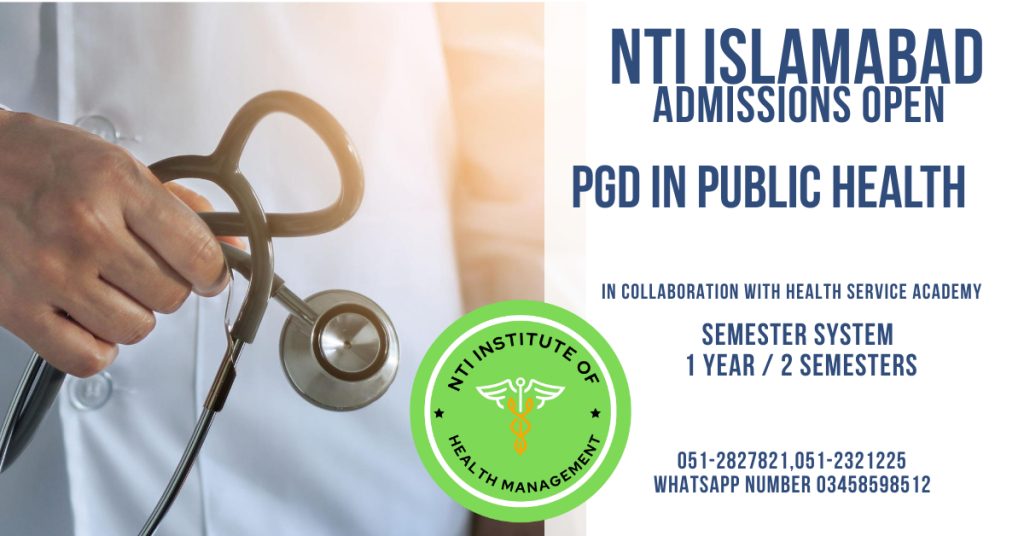Pakistan has one of the best-knitted networks of health care facilities in the public sector; and a very large private sector. The public sector facilities mostly, face the problems of underutilization and under-functioning along with technical and allocative inefficiency. This situation has been described in different donor reports and evaluations carried out by the Government of Pakistan. The management of the private sector has also been considered inefficient and not very effective. Specific Management tools and techniques, such as strategic management, management by objectives, quality assurance methods, monitoring and evaluation of the health systems outputs and outcomes, and an economic appraisal are not practiced in both the public and the private sector. One of the primary reasons for all these issues is that most health managers lack expertise in health management. Insufficient management knowledge, inappropriate skills and lack of expertise in management, further undermine their capability to improve the health system. The way forward is continuous education and training leading to the capacity building of the mid-level health managers and encouraging them to apply their knowledge in their respective settings. On the other hand, there is no well-developed and properly facilitated management training being offered in Pakistan which can fulfil the need of the health managers in public as well as private sector.
Diploma in Public Health is a wonderful opportunity designed to improve the public health capacity of health professional in terms of their knowledge, attitude and skills in Pakistan.
Diploma in PH aims to develop professionals in the field of Public Health through a comprehensive post-graduate program. It offers intensive practical training in the operational and clinical areas of a hospital. It equips them with PH skills like planning, organizing and decision- making with specific relevance to healthcare industry. Health industry is growing at a fast rate every year. In Pakistan growing occupations are also related to healthcare. Health care is likely to generate new jobs. It is estimated that the demand for public health is expected to touch over 6000 within next five years in Pakistan. Existing healthcare organizations are expanding their hospitals to add new service areas; and new organizations are entering the domain.

